The best iPhone chargers 2025: top-tier cables, mats, and blocks for your iPhone
We've tested the best iPhone chargers, blocks, and cables
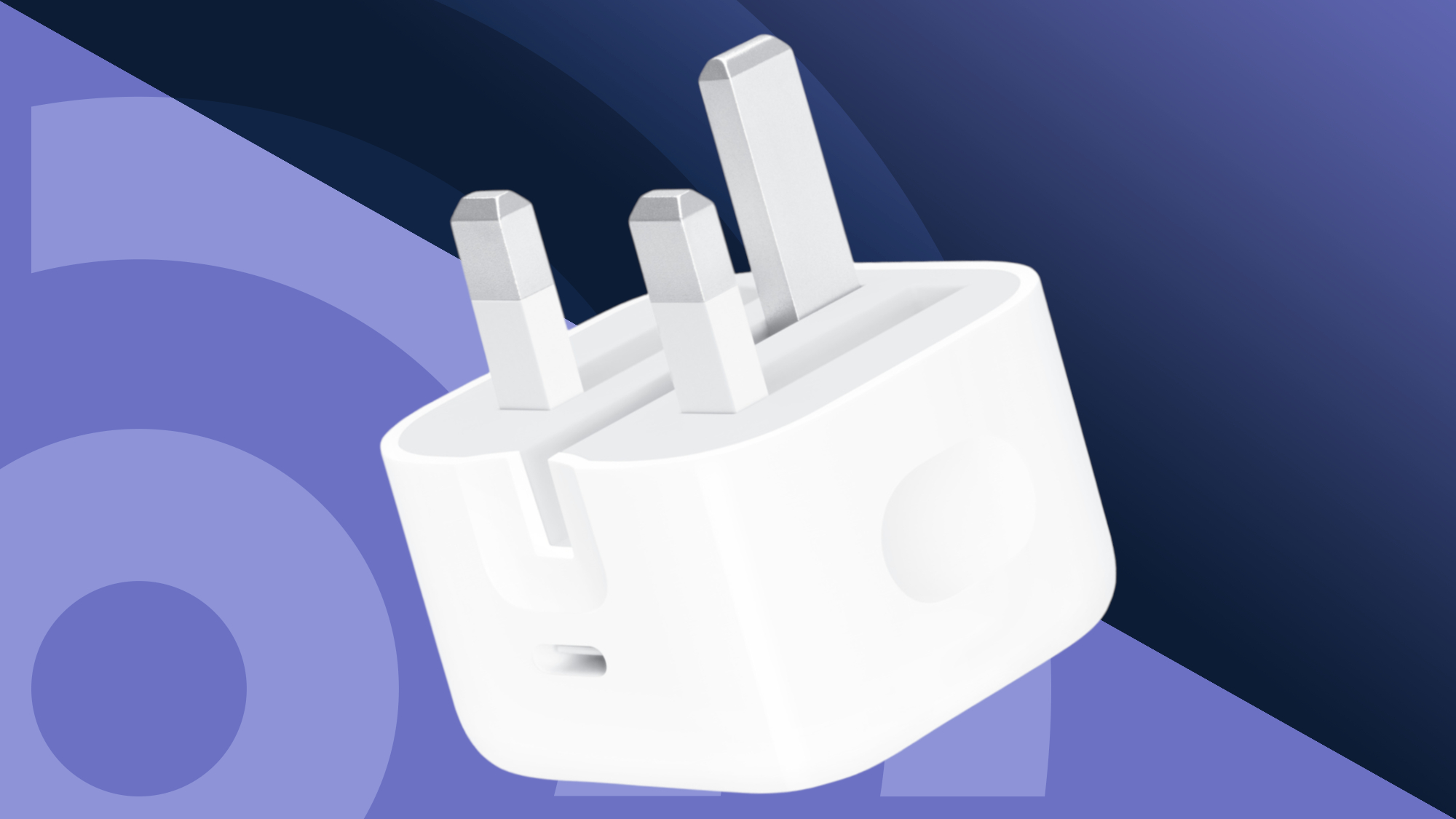
The best iPhone chargers are a worthy investment if you regularly find yourself wanting for battery life. These helpful bits of kit can juice up your Apple device in a flash, and in this guide, we've sifted through the best available options in 2025.
In the olden days, every iPhone came with a 5W charger, but in 2025, even the very best iPhones – from the iPhone 16 Pro Max to the iPhone 15 – ship without one. What's more, if you do still have an old 5W charger, these power packs don't support fast charging – and that's where time-saving 20W chargers come in. iPhones also use different charging standards to many Android phones, so strong PD (Power Delivery) measurements are worth looking out for.
We've divided this roundup into sections to help you further. First, there are chargers and charging blocks, then charging cables, with wireless charging pads and car chargers rounding out our selection. For other charging needs, check out our guides to the best wireless chargers and best power banks.
Incidentally, the iPhone 16 line also supports 45W wired charging and 25W wireless MagSafe charging, so we'll be updating the below list with some higher-wattage chargers soon.
The quick list
Want the simplest guide to the best iPhone chargers around? Here's our quick guide – and you can read more in-depth verdicts on each iPhone charging option by following the links.
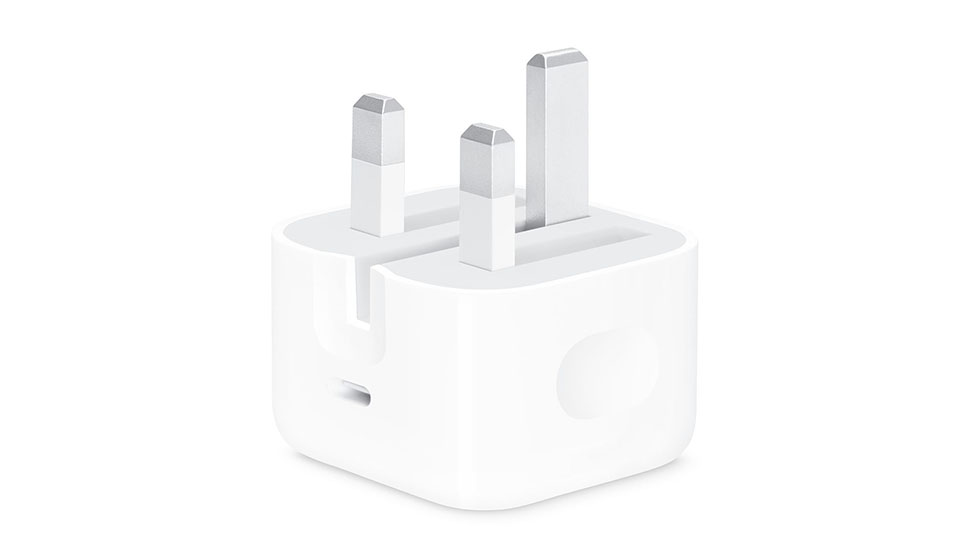
The best official iPhone charger
This is the charger the Apple recommends for your iPhone 12 of newer device. It's too bad Apple doesn't bundle this charger any more, because it's nice and fast and works with all of Apple's latest gear. It's 20W charging speed isn't the fastest, but at least it will match your other Apple stuff.
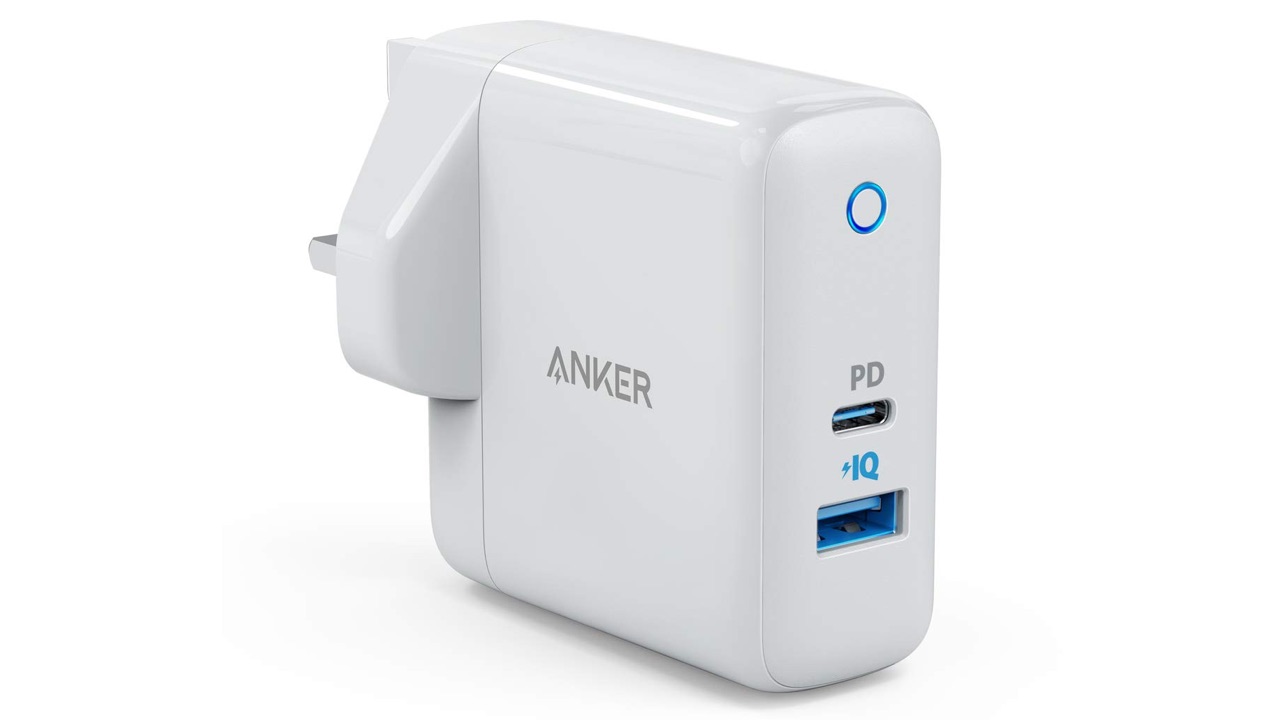
A great charger if you need multiple ports and high speeds
This Anker PowerPort Speed Plus Duo charger can power devices up to 42W, which is much faster than Apple's standard iPhone charger. That means you can charge two iPhones at once at full speed, or your iPhone plus your AirPods. You could even charge a small laptop with this USB-C charger.
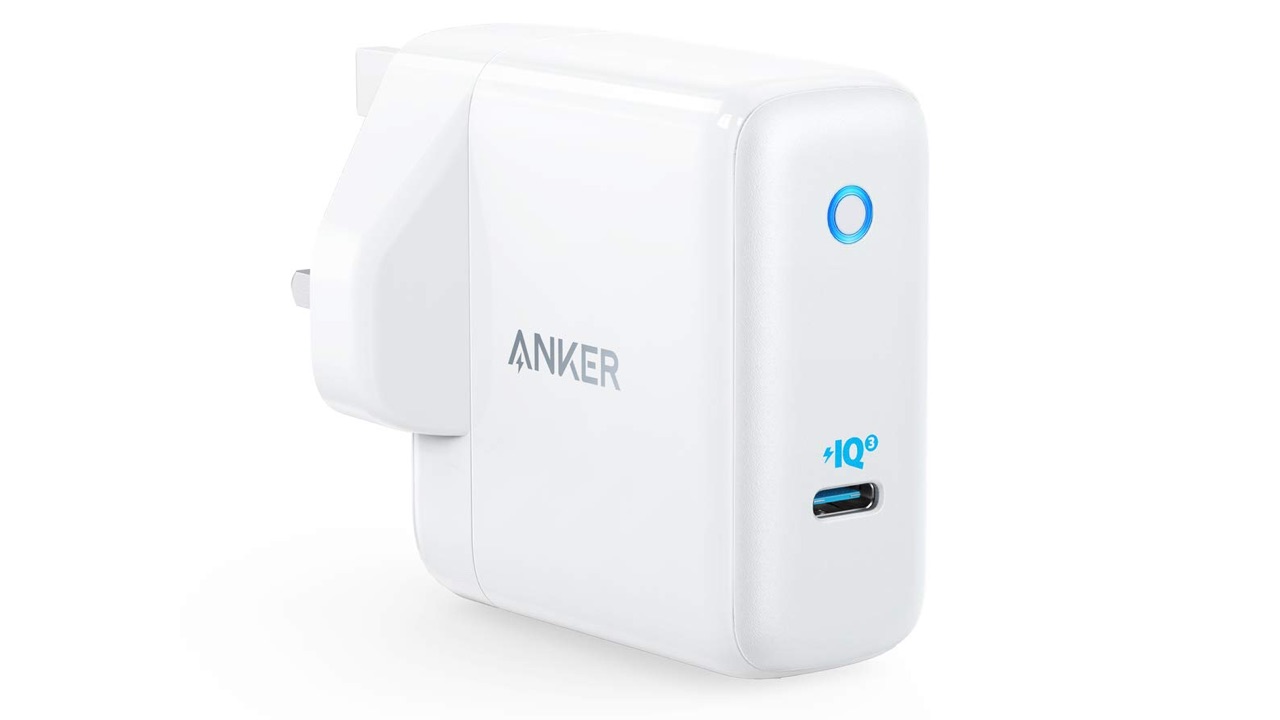
A top choice for masses of power
If you need supreme power, this 60W Anker PowerPort Atom III charger can deliver enough juice to power a Macbook Pro, so your iPhone will charge as quickly as possible if you connect this charger. You won't find a faster charger for the iPhone, because the iPhone can't charge this fast anyway.
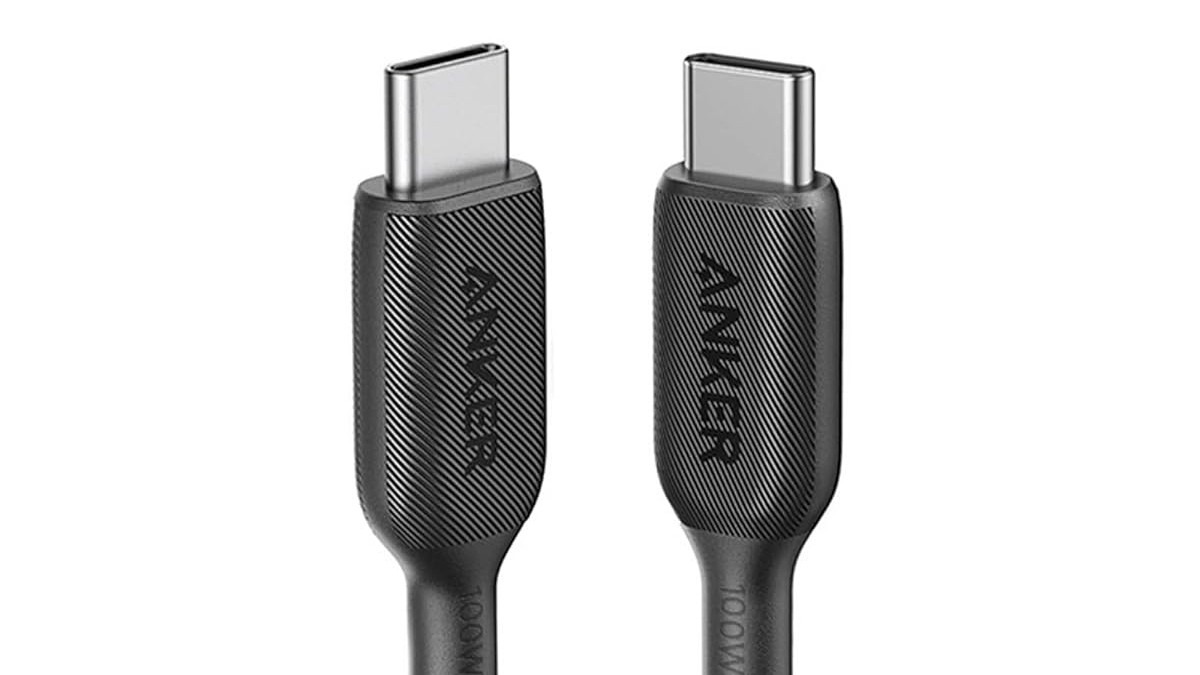
The best all-round iPhone 15 charging cable
Anker Powerline cables are some of the most reliable and popular USB-C cables you can buy, for good reason. This shorter cable is inexpensive and it will connect your iPhone to any other USB charger or accessory you like. The Powerline charger has no problem charging at full speeds, either.
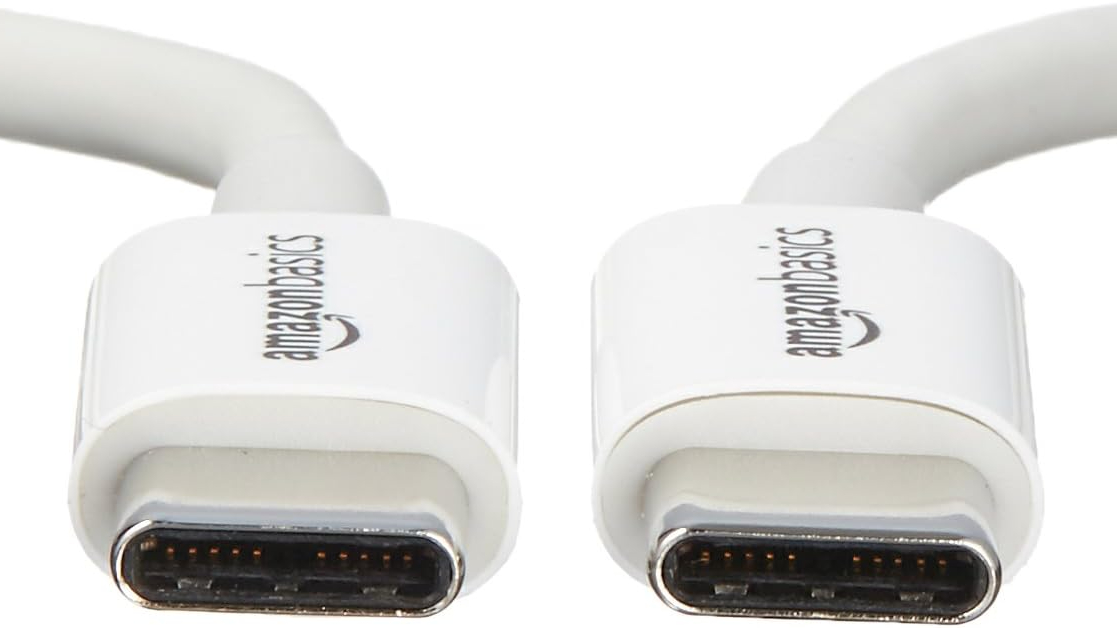
A cheap everyday iPhone 15 charger
Amazon's entry-level USB-C cable is basic and cheap, just like you'd want from the store brand. It doesn't support the fastest data or charging speeds, but it will do just fine for your iPhone, and it's cheap enough that you can buy some spare cables to keep wherever you go.
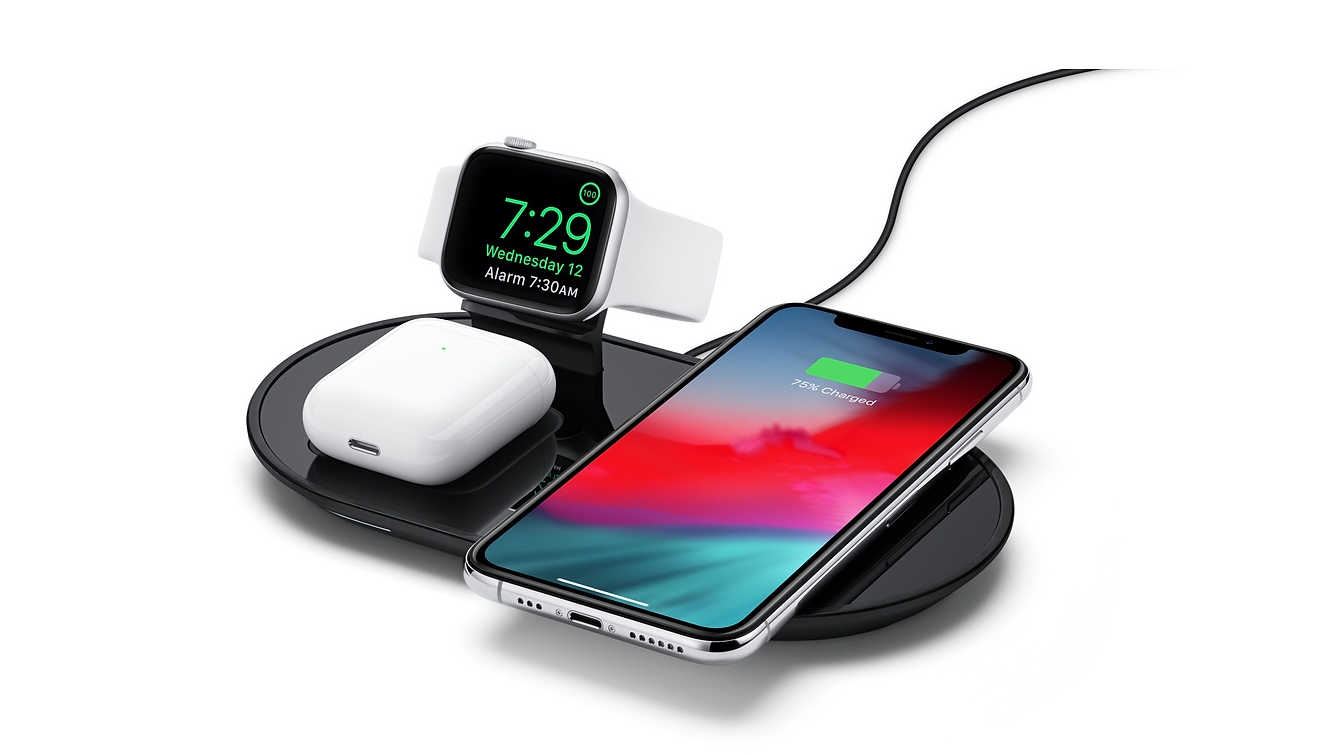
Charge all your Apple devices at once
Since Apple's 3-in-1 charger never materialized, we like this Mophie wireless charging pad when we need to charge our iPhone, AirPods, and Apple Watch all at once. It doesn't charge incredibly fast, so it's better as a desk-side adornment to charge overnight, but it charges everything at once, and that saves time on its own.
The best iPhone chargers 2025
Why you can trust TechRadar
The best iPhone chargers and charging blocks

1. Apple 20W USB-C Power Adapter
Specifications
Reasons to buy
Reasons to avoid
The charger that Apple recommends for your iPhone 12 or above is also the one you'll wish came bundled with your not-exactly-cheap purchase.
At 20W, it's a fast charger, so it's a worthwhile investment compared to simply using the charging cable, but you'll likely begrudge the fact you need to pay the extra, especially since, in the scheme of smartphone charging, 20W isn’t all that fast (though it’s about as much as an iPhone can support).
Still, if you're going to buy one, at least you know you'll get a quality product. It has that clean minimalist design that works so well for Apple devices, and it's incredibly simple to use, making it easily one of the best iPhone chargers. Obviously, don't expect it to come with a spare charging cable (that would be far too much like good value!).
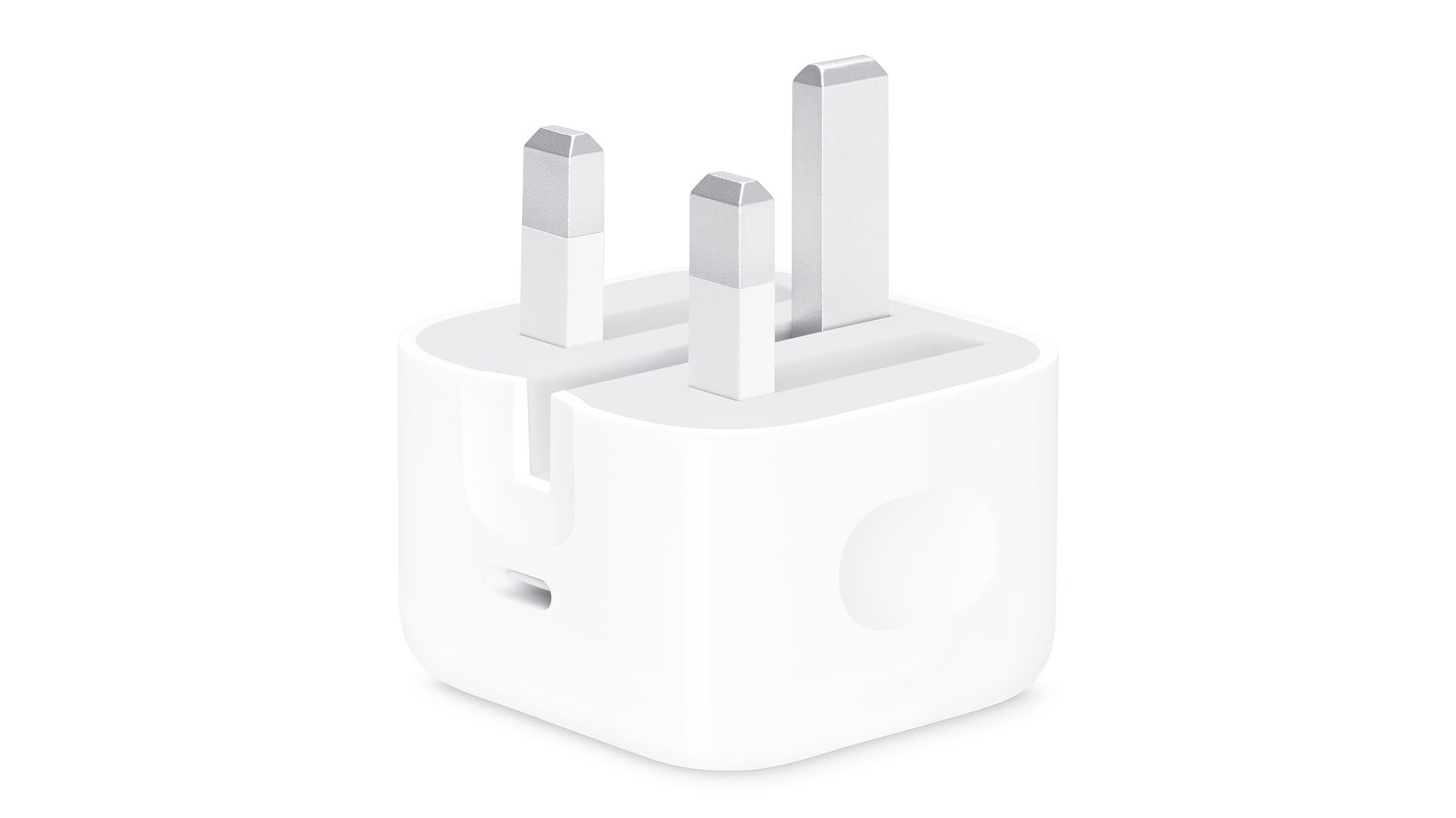
2. Apple 18W USB-C Power Adapter
Specifications
Reasons to buy
Reasons to avoid
Apple recommends this charger for the iPad Pro and iPhone 8 or later, all of which support fast charging. It's frustrating Apple doesn't provide this fast charger with the any of its phones anymore.
But if you’re a heavy iPhone user, it’s a worthwhile investment. The difference between the 18W charger and the ancient 5W one is dramatic: with the former you can get about 50% charge from flat in half an hour, but the latter takes much longer. It's worth noting you won't get a cable with this charger though. Sigh.
This also obviously isn’t quite as powerful as Apple’s 20W charger, but the difference is negligible, and if your device can’t make the most of 20W then this is a safe bet – if an inevitably overpriced one, coming from Apple as it does.

3. Anker PowerPort Speed Plus Duo
Specifications
Reasons to buy
Reasons to avoid
If you can’t bear giving more money to Apple for the charger that should have come with your phone in the first place, be careful what you buy instead: some chargers advertised as fast chargers are only fast for Android devices, not Apple ones. This one, though, is a 42W fast charger that works with all iPhones and fast charges iPhone 8s onwards.
It’s half the price of the Apple one and has one high-speed USB-C for fast charging and a second USB-A for other devices. Cables aren’t included. We’ve used many Anker chargers over the years now, and we’ve found them to be consistently reliable.
Given the high power here it’s a great bet for if you have other devices that support fast charging (including those that support higher power charging that any iPhone). It’s potentially more future-proofed for Apple devices too, since in future we might see faster charging iPhones that can take full advantage of a 42W charger.

4. Anker PowerPort Atom III
Specifications
Reasons to buy
Reasons to avoid
If you want to charge your laptop as well as your iPhone, this is one of the best iPhone chargers for you. It comes in two models, a single-port one and one with a second USB-A port.
The PowerPort Atom III has 60W of power and can charge pretty much anything that you can connect to its USB-C port. At 60W, it still can’t charge some devices (such as certain Android phones) at top speeds, so consider that if you plan to use this with devices other than your iPhone, but it’s certainly one of the fastest chargers that also powers up Apple gadgets quickly.
On the flipside, if all you want to do is charge your iPhone, then this thing is overkill, and you can potentially get a cheaper charger that will do the job just as well. So, consider what you need before buying.
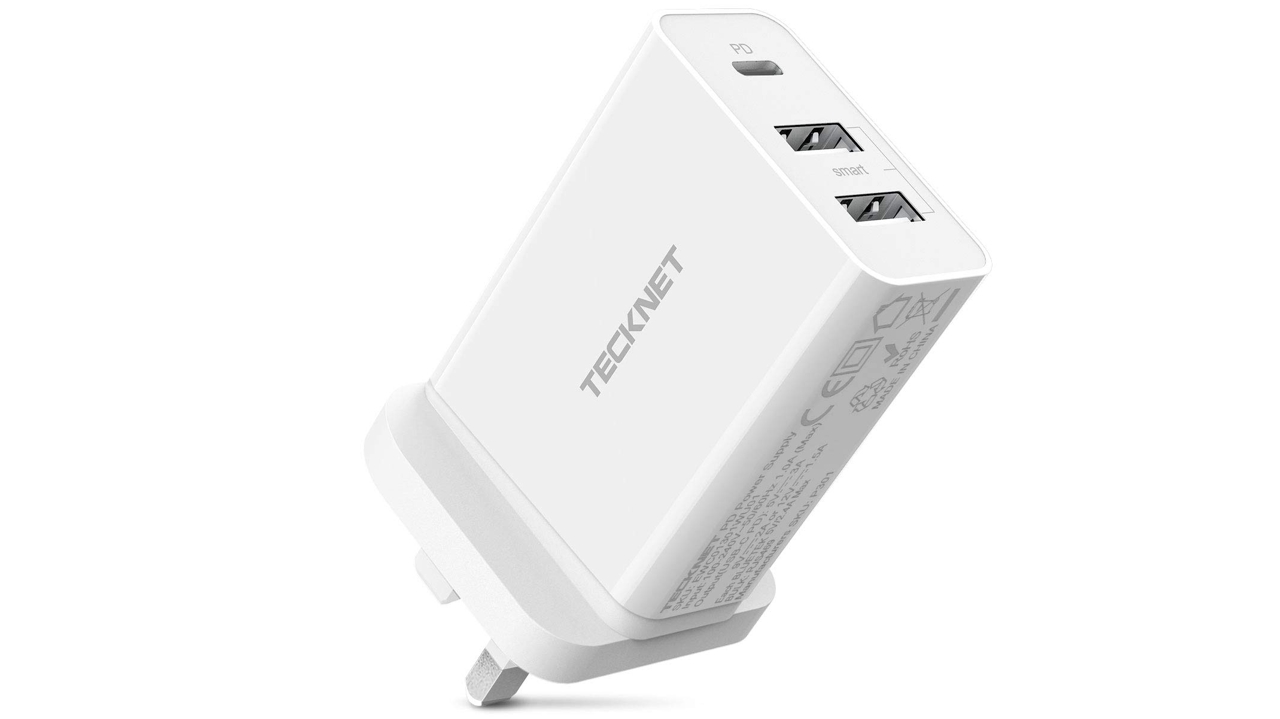
5. TeckNet 30W PD USB Charger
Specifications
Reasons to buy
Reasons to avoid
Most of us live in households where there’s more than one kind of device to charge. That's why this charger from TeckNet is a good solution: it has an 18W USB-C port with Power Delivery for fast charging your iPhone, and it also has two USB-A ports that you can use to charge other devices at the same time.
It’s a fairly bulky charger – don’t expect to be able to hide it behind something in the kitchen – but it’s solid, safe and delivers enough power to recharge even the biggest iPhone at a high speed. Three ports mean it’s a good travel option too.
If you only tend to charge one device at a time then we’d recommend something smaller with fewer ports (and potentially a lower price or higher power), but if you use multiple battery-powered gadgets then this is a great call.
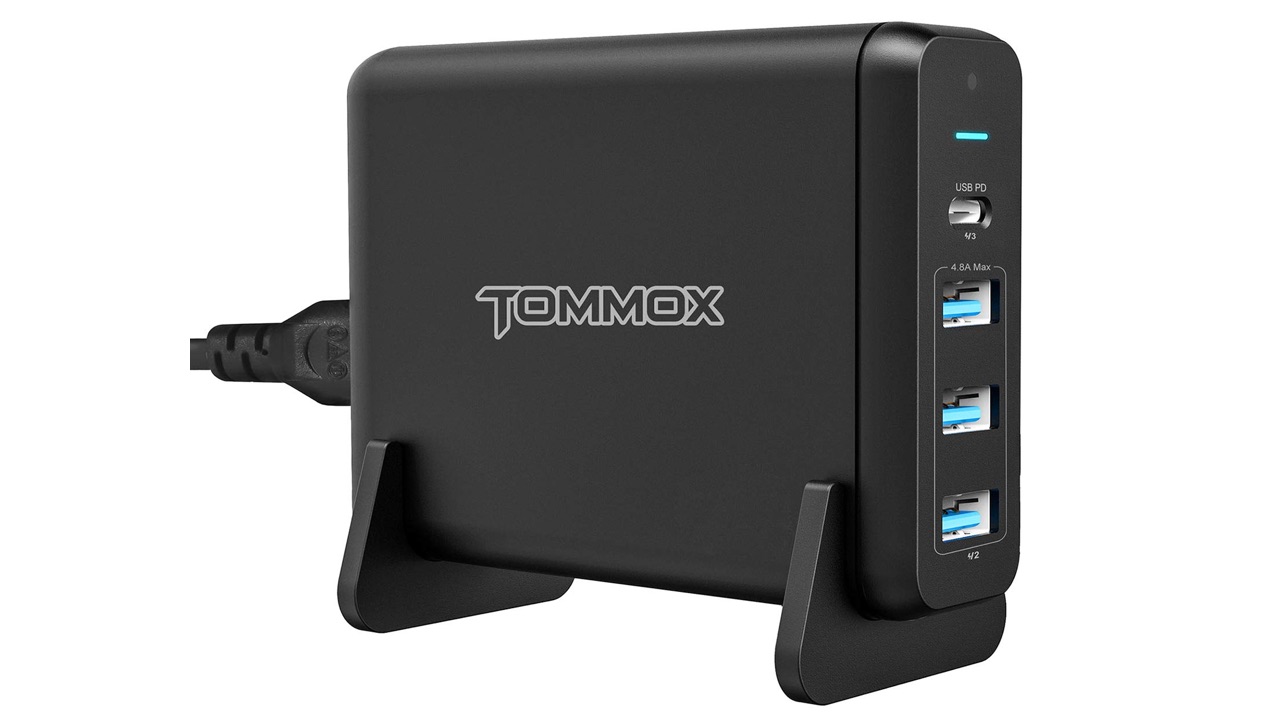
6. TOMMOX PowerCenter 4 75W PD USB Charger
Specifications
Reasons to buy
Reasons to avoid
The TOMMOX PowerCenter 4 charger isn't stylish, it’s not incredibly light and it’s not very small. But it is undeniably useful – so much so that, for our money, it ranks among the best iPhone chargers.
It can throw up to 60W of power through its USB-C connector, which is enough to speedily charge a laptop, and its triple USB-A connectors enable you to connect and charge three other devices at the same time. That’s more ports than most chargers give you.
Like its rival chargers, it’s dual voltage, so you can take it with you on holiday to charge your iPhone, your Kindle, your camera, your Apple Watch and anything else that needs topping up. It’s not as elegant as a multi-device wireless charger, but it’s an awful lot cheaper, and it’s one of the most powerful options on this list, so it’s ideal for juicing up devices that support its full wattage.
The best USB-C iPhone charging cables

1. Anker Powerline III USB-C to USB-C Cable
Specifications
Reasons to buy
Reasons to avoid
Anker's Powerline III USB-C to USB-C cable is Amazon's best-selling USB-C charging cable, and for good reason. It'll charge your iPhone 15, iPhone 15 Plus, iPhone 15 Pro or iPhone 15 Pro Max at its maximum charging speed (when paired with one of the above charging blocks), and you won't have to fork out a princely sum for the privilege (at the time of writing, the Powerline III retails for $12.99 / £9.99 / AU$19.99).
This 1.8-meter cable isn't braided, which perhaps explains why its price is so agreeable, but Anker has nonetheless adorned the Powerline III with "quadruple bulletproof fiber cores", which allow it to withstand up to 25,000 bends. In other words, this super slim cable will outlast your current iPhone 15 – and likely the iPhone 16, should you choose to buy one – and you can use it to charge your USB-C-compatible MacBook or iPad to its maximum charging capacity, too.
What's more, thanks to the reverse charging capabilities of the iPhone 15, you’re now able to reverse charge your AirPods using a cable such as this one (check out our guide on how to charge AirPods using an iPhone 15 for the details). That benefit applies to all the USB-C chargers listed in this guide, mind.

2. Amazon Basics USB-C to USB-C 2.0 Fast Charger Cable
Specifications
Reasons to buy
Reasons to avoid
If you're looking for a cheap and cheerful iPhone 15 charger, Amazon's entry-level USB-C to USB-C 2.0 Fast Charger is a worthy pick. With its USB-IF certification and 480Mbps speed, it'll reliably charge any USB-C-compatible Apple product, and its 1.8-meter length provides a reasonable level of flexibility (unless your living in a house with huge rooms).
This Amazon Basics cable only supports USB 2.0 data, so you won't be able to use it to connect to SuperSpeed USB 3.1 devices such as external HDD or SSDs, but for an affordable, no-frills charging experience, you can't really go wrong here.
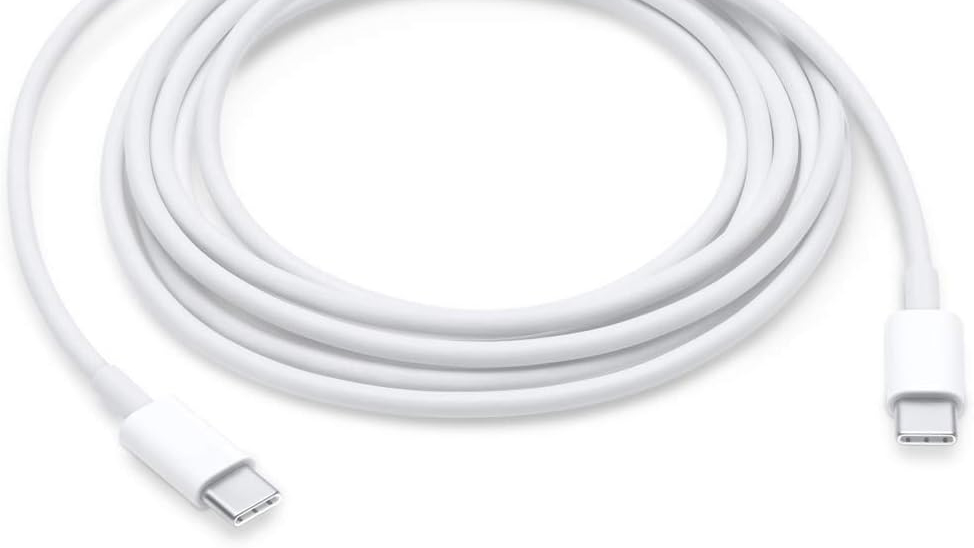
3. Apple USB-C to USB-C Cable
Specifications
Reasons to buy
Reasons to avoid
Put simply, with Apple's USC-C to USB-C cable, you're paying for the brand name and some impressive length. For everything else – price, durability, etc. – you'll be better off going for Anker's aforementioned Powerline III USB-C cable, but we know that some people prefer the comfort of pairing their iPhone with an Apple-branded cable, hence why we've included this model here.
A shorter, 1-meter Apple USC-C cable is currently available at Amazon and via Apple itself, but we think, if you're already committed to spending big, you may as well fork out the $34.99 / £29 / $49 price for this 2-meter version, which is more versatile (by virtue of its superior length). If you really want to push the boat out, Apple also has a beautiful-looking braided version of this cable available at Amazon, though the price of that particular model fluctuates more than the price of Bitcoin.
The best Lightning iPhone charging cables
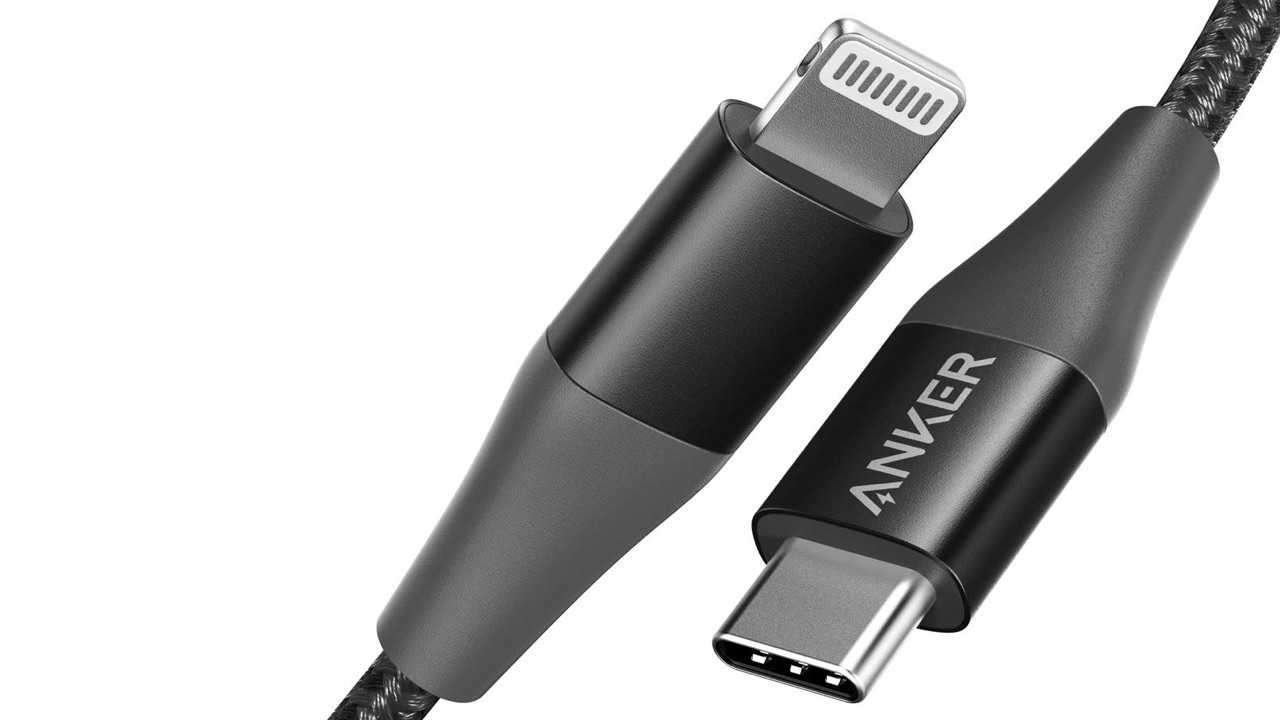
1. Anker Powerline Plus II USB-C to Lightning Cable
Specifications
Reasons to buy
Reasons to avoid
The Powerline Plus II cable is exceptionally tough and exceptionally quick, and it may be the last Lightning cable you ever buy. That’s because it’s designed for USB-C connections, which deliver much faster charging than USB-A ones – assuming your charger delivers the right amount of juice, of course.
It works with high-powered chargers, including Apple’s ones, and is lab-tested to withstand 30,000 bends, which means it should last thirty times longer than lesser cables. Anker is so confident that it offers a lifetime warranty: this cable should last much longer than any of your iPhones or iPads.
The Anker Powerline Plus II USB-C to Lightning Cable is not cheap, but given its durability it could end up being better value than other cables, which might need replacing a lot more frequently. So, for savvy buyers this is a strong choice.
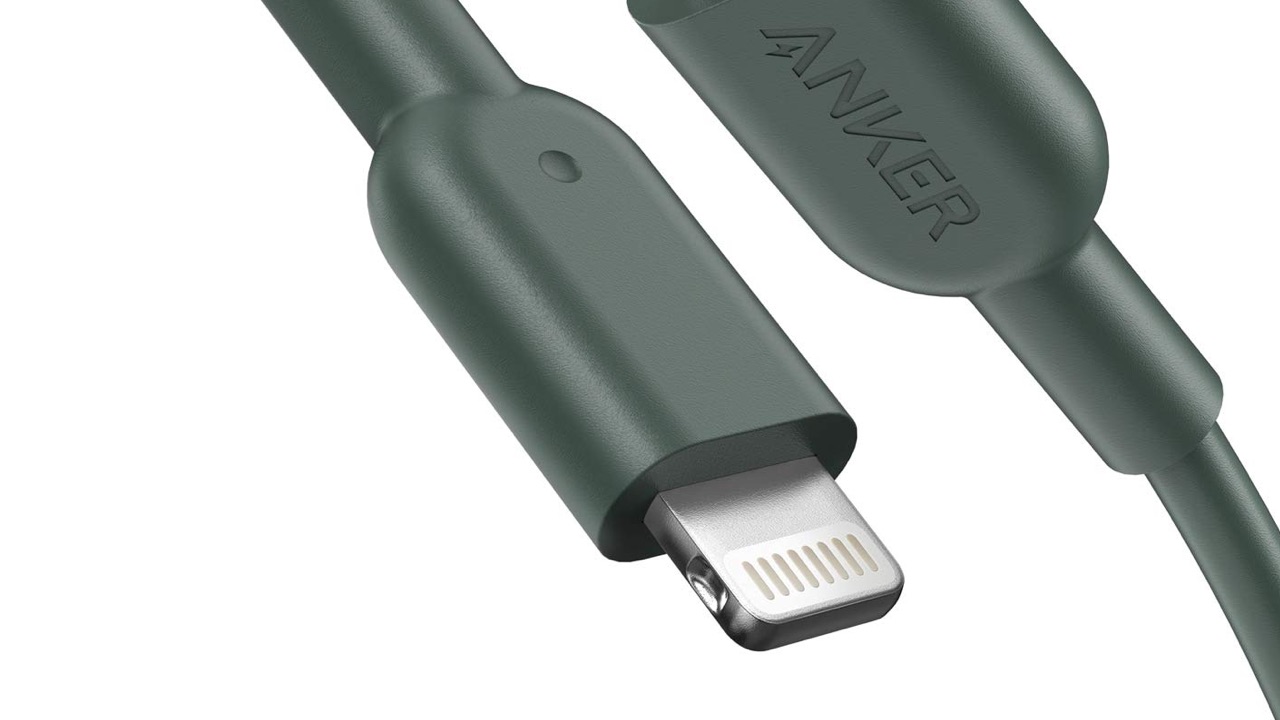
2. Anker Powerline USB-C to Lightning Cable
Specifications
Reasons to buy
Reasons to avoid
If you’re not fussed about getting a braided cable and want a 1.8 meter one, the original Powerline cables are very good value: you’ll be hard-pressed to find a similar quality USB-C cable of the same length for the same price.
The question here is whether you want the increased strength of the braided Powerline Plus II, which is only a little bit more expensive. Where that one has been lab-tested to survive 30,000 bends, the original Powerline has only been tested to 12,000 bends – although like its sibling it does come with a lifetime warranty.
In short, then, if you plan to use this cable a lot – and don’t want to have to replace it for a long, long time – it’s probably worth spending the extra on the Powerline Plus II, but as a relatively basic, affordable option, this is a strong choice.
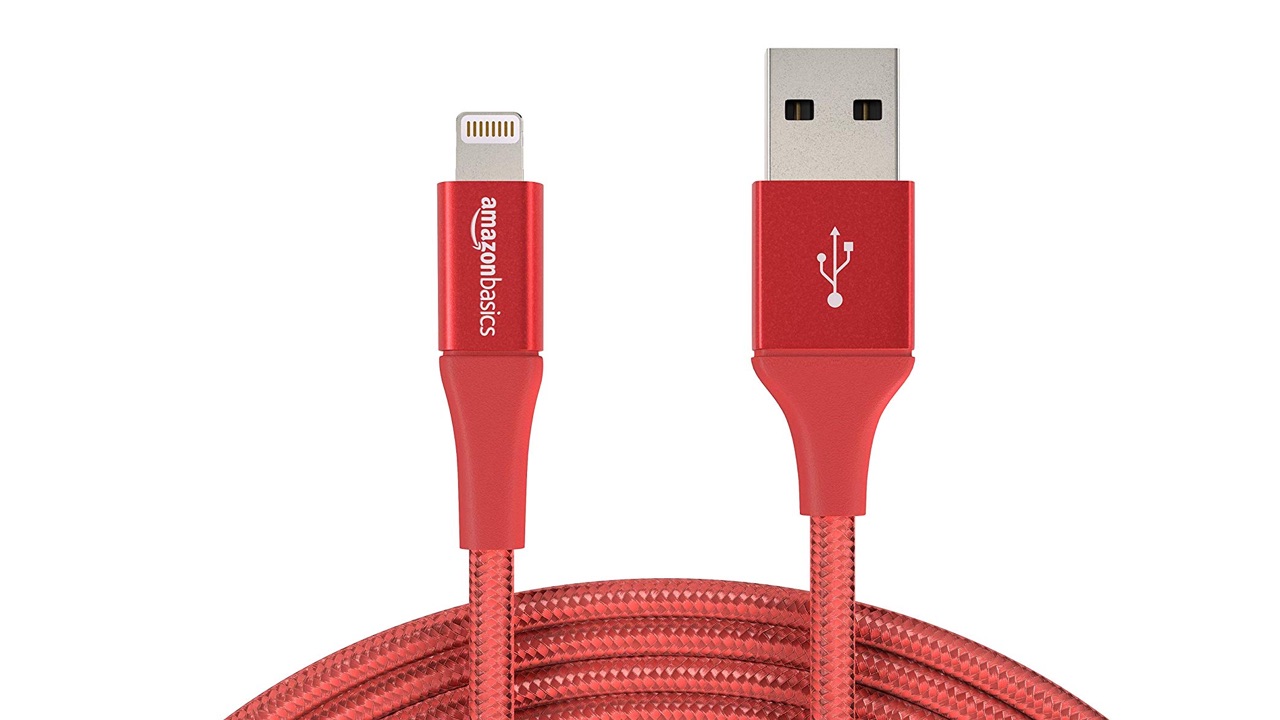
3. Amazon Basics DoubleBraided Nylon USB-A to Lightning Cable
Specifications
Reasons to buy
Reasons to avoid
This 3-meter cable may be the most useful iPhone charging cable ever made. It’s available in much smaller sizes, but there’s a reason we love the long one. It’s long enough to stretch from a wall socket to the sofa or from your in-car charger to the kids’ iPad in the back seat.
We can’t overstate how useful that actually is, since it means there’s almost no situation where you won’t be able to still use your device while it’s charging. Length isn’t the only good thing here. Nylon braiding means it doesn’t tangle easily, and the sleeves at the joint between the cable and the connector prevent the bending that can lead to dangerous fraying.
The colors range from utilitarian grey to hard-to-lose red and rose gold. Our only niggle is that the Lightning end feels a little looser than Apple’s own cable, especially in our iPad.
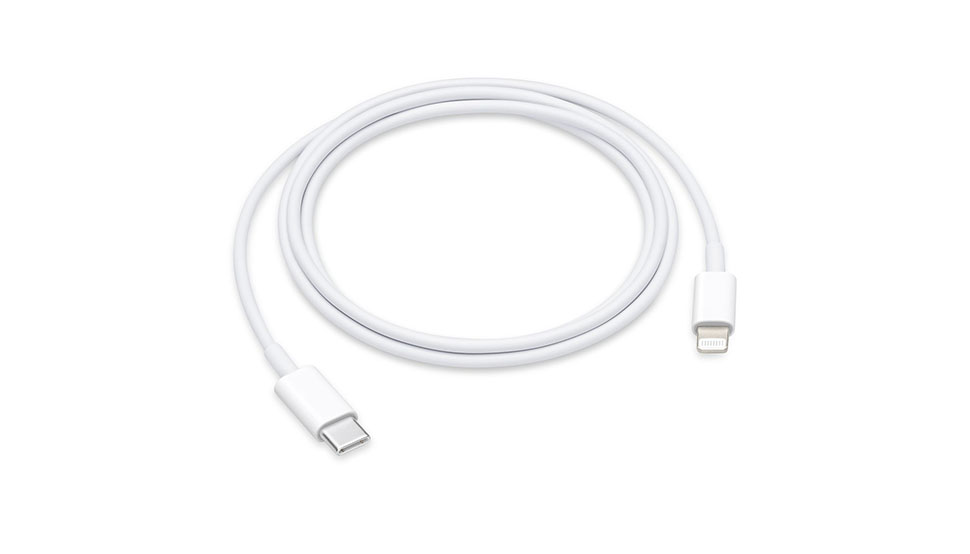
4. Apple USB-C to Lightning Cable
Specifications
Reasons to buy
Reasons to avoid
Simple in almost every way, the Apple USB-C to Lightning cable is an ideal option if you prefer sticking with the Apple name. It's not as durable as some other options here, with the cable prone to fraying after a lot of use unless you're very careful, but you have the guarantee of compatibility thanks to this being made exclusively for Apple devices.
The cable works with iPhones, iPads and iPods that have Lightning connectors so it's fairly flexible here. You can also use it with numerous types of USB-C power adapters to gain fast-charging functionality. It's far from an exciting cable with only one color option and little else going on, but it's highly dependable. Of course, coming from Apple you’ll also be paying above the odds for what you get, but in exchange you get the reassurance of a trusted brand.
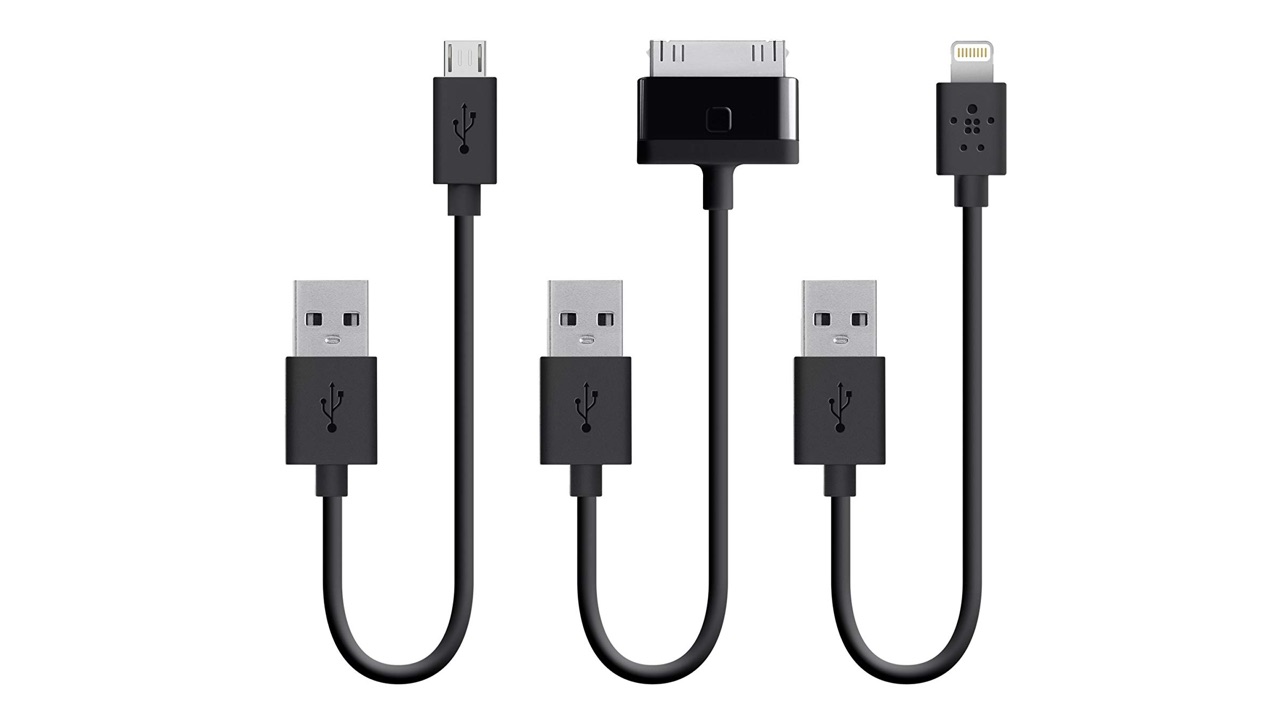
5. Belkin Triple Pack of 6-inch Charge and Sync Cables
Specifications
Reasons to buy
Reasons to avoid
Here’s a handy one for people with gadgets of various vintages: a triple pack of 6-inch charging cables that covers pre-Lightning iPhones, iPads and iPods, plus modern Lightning devices and non-Apple micro USB devices such as Kindles, console controllers and cameras.
We’d argue that the main benefit of buying a triple-pack of good-quality cables from the likes of Belkin instead of a single cable with swappable connectors is that swapping connectors causes wear and tear for the three days you get before losing all of them.
So, this pack can help you charge almost anything, and you’re unlikely to wear them out quickly. If you only have one device, or all your chargeable gadgets use the same connector, then these three cables may not be necessary, but if your house is as full of gadgets as ours then these cables will come in real handy.
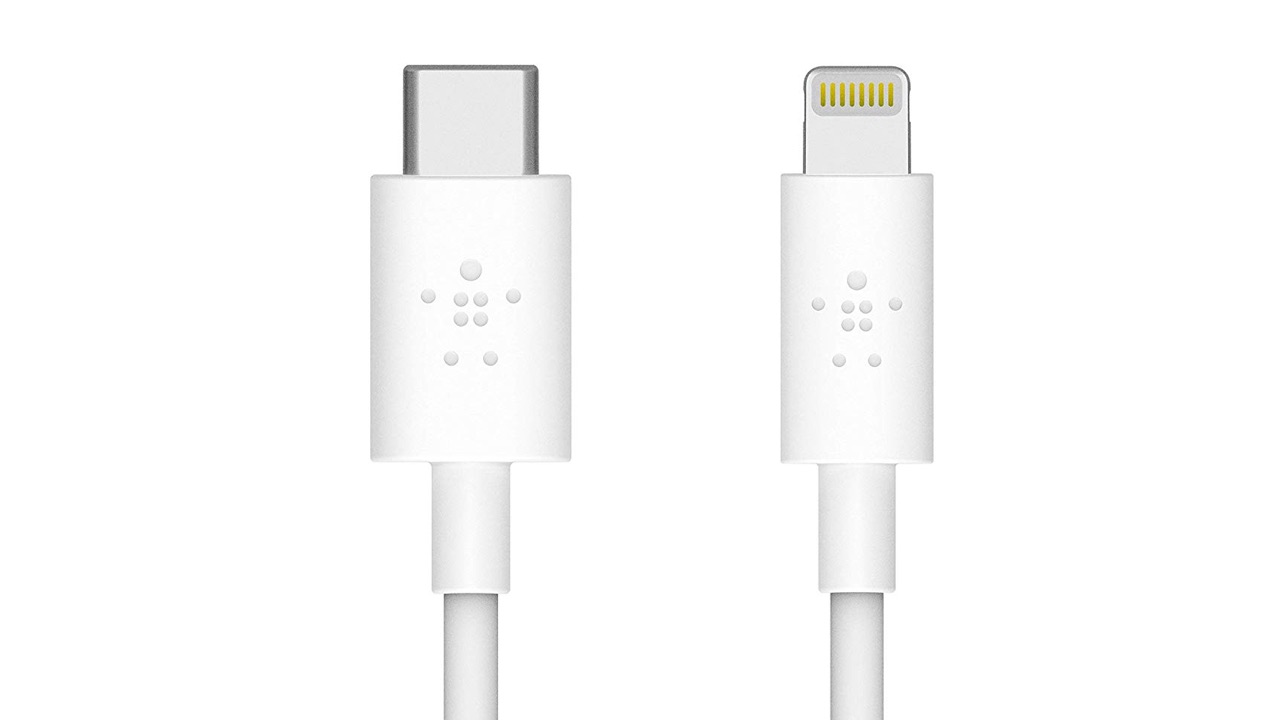
6. Belkin Boost Charge USB-C cable
Specifications
Reasons to buy
Reasons to avoid
Sometimes, little things make a big difference. At 1.2 meters (4ft) compared to the more common 0.9 meter (3ft), Belkin’s Boost is a little bit longer than the average iPhone charging cable.
That extra foot means it’s a lot more useful: it’s likely to be long enough to reach from the floor socket to the sofa without you having to sit in an awkward position; it’s long enough to reach the bedside table without having to rearrange the furniture; it’s long enough for the passenger in your car, and so on.
It’s a typically high-quality Belkin product, although personally we prefer braided cables to smooth ones as they're less likely to get tangled and damaged. There are of course even longer cables than this available, but they can be overkill, where this strikes a nice balance.
The best iPhone wireless charging pads and car chargers

1. Mophie 3-in-1 Wireless Charging Pad
Specifications
Reasons to buy
Reasons to avoid
With Apple’s AirPower wireless charging pad DOA, where do you go when you want to charge not just your iPhone but your AirPods and your Apple Watch too? Mophie has the answer, and while it’s hardly cheap, it’s compact, stylish, easy to clean and particularly handy for commuters and travelers.
The Mophie 3-in-1 Wireless Charging Pad will chuck 7.5W of power at your iPhone and works through cases up to 3mm thick. Meanwhile, the Apple Watch connector is housed at an angle that’s ideal for Bedside Mode, and the AirPods charging point doesn’t obscure your view of your Apple Watch’s face.
Unlike standard wireless charging pads you won’t need to buy or provide a separate wall charger, either. So, it’s a very well thought through and complete wireless charging option. If there’s a downside it’s that this isn’t cheap, but it’s certainly still good value for money, and one of the best iPhone chargers overall.
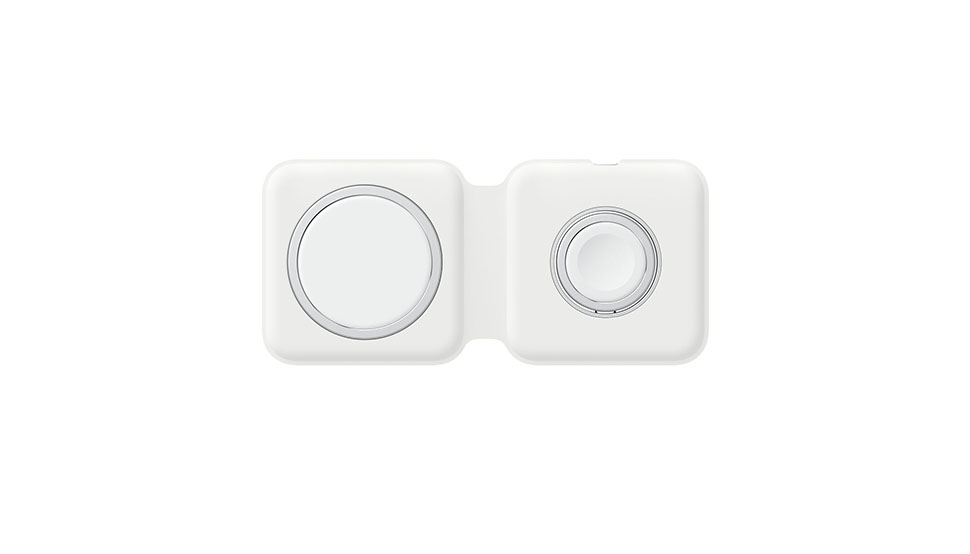
2. MagSafe Duo
Specifications
Reasons to buy
Reasons to avoid
If you want a highly stylish wireless charger that also happens to charge both your iPhone and Apple Watch at the same time, the MagSafe Duo looks gorgeous. It's not as fast as some other wireless chargers because it only offers up to 11W when hooked up to a 27W wall adapter (which isn’t included here), however that won't be an issue if your focus is overnight charging.
Where the MagSafe Duo does stand out is in its ability to be folded in half and easily deposited in your pocket for safe keeping. You won't have trouble finding room for this device when it's not in use, and it's ideal for regular travel.
Just bear in mind that you're paying the Apple premium for good looks and a practical design. Still, as this works well both as a travel charger and a primary one, you won’t have to buy two if you get this.
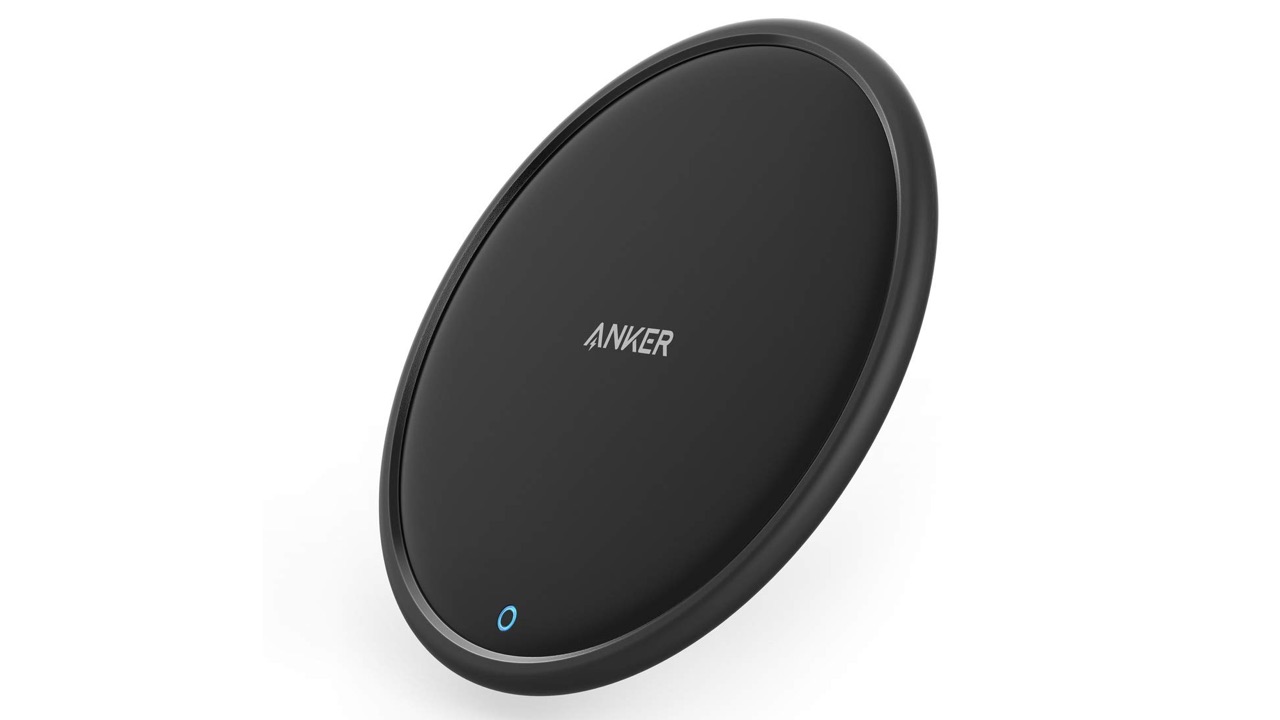
3. Anker PowerWave Fast Wireless Charging Pad
Specifications
Reasons to buy
Reasons to avoid
As with wired fast chargers, wireless chargers don’t work in the same way for iPhones as they do for Android devices. For example, a typical 10W wireless charger will deliver that power to Android but drop to 7.5W or even 5W for an iPhone. That’s because Apple doesn’t currently support 10W wireless charging: it initially supported 5W and upped that to 7.5W, but iOS still currently limits some Qi chargers to 5W.
This Anker wireless charger delivers the current iPhone maximum of 7.5W to recent iPhones, but it’s important to note that it can only do that if it’s connected to a wall charger that’s compatible with Quick Charge 3.0. If not, it isn’t drawing enough power. Note that if you have a MagSafe charger and iPhone you can exceed 7.5W – in that case you can get up to 15W, just not with Qi charging.
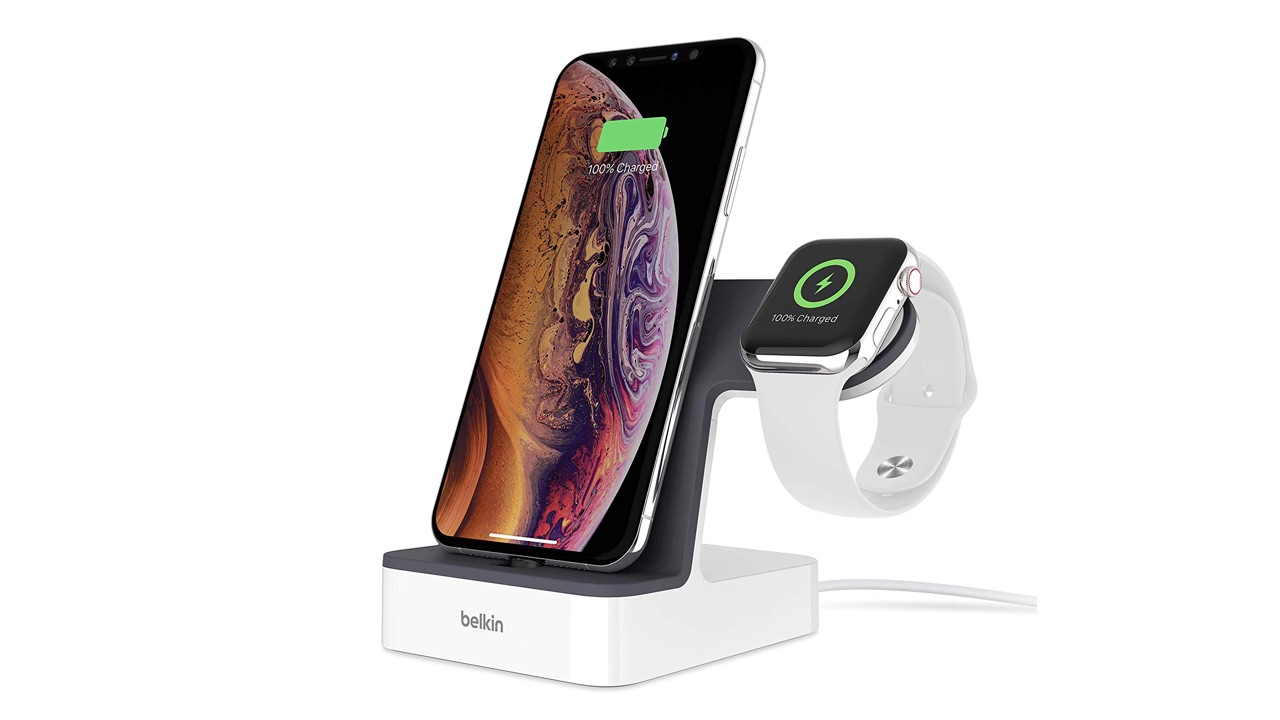
4. Belkin PowerHouse Charge Dock
Specifications
Reasons to buy
Reasons to avoid
Belkin’s PowerHouse is a simple, effective and reasonably-priced dual charger for iPhone and Apple Watch, and it works with any iPhone that has a Lightning connector. Unlike the Mophie wireless pad there’s no AirPods charger and the iPhone connection is wired, not wireless – but the connector is movable so you shouldn’t have to take your phone out of its case.
The integrated, magnetic Apple Watch charger doesn’t need your charging cable – so you can use your Watch cable somewhere else, for example when you’re traveling or at work. It’s a good quality charger but beware if you have an official Apple leather case: some reviewers say the heat from the charger transfers color from the case to the charger. For everyone else though, the Belkin PowerHouse Charge Dock looks to be a very strong choice of wireless charger, and one of the best iPhone chargers around.
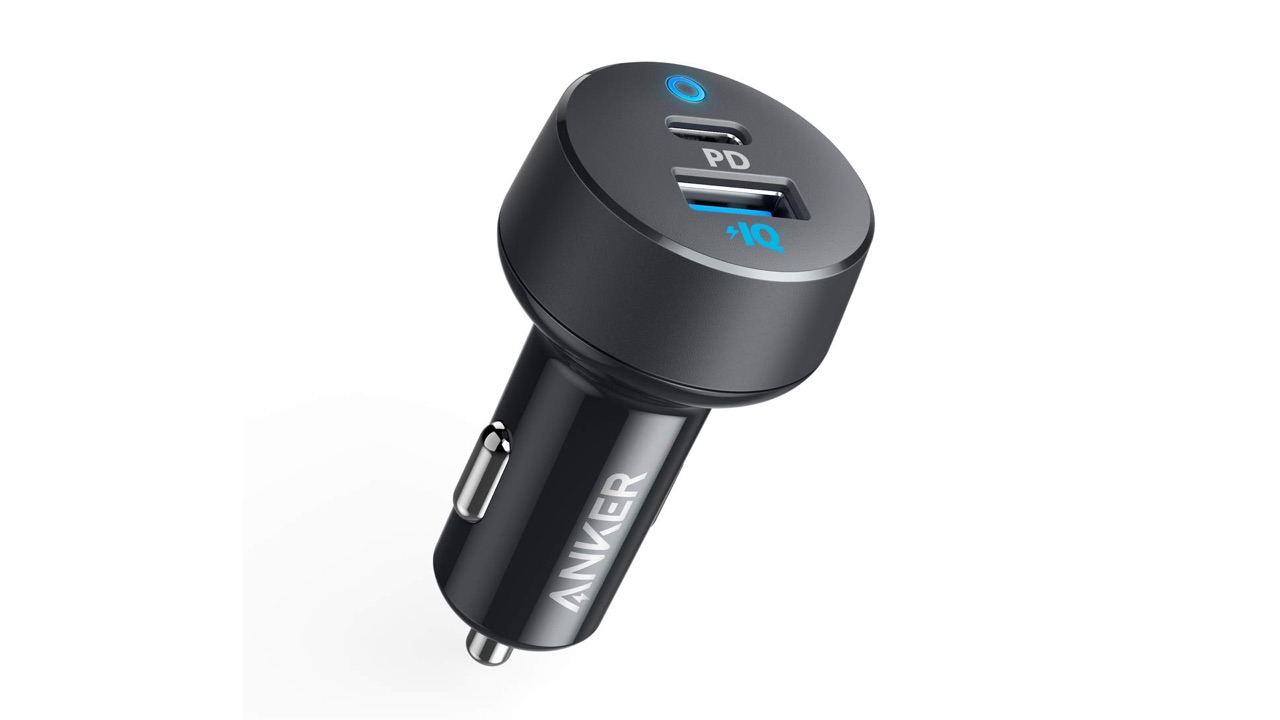
5. Anker Power Drive PD 2-port Type C Car Charger
Specifications
Reasons to buy
Reasons to avoid
Many car chargers deliver tiny amounts of power, and that’s a problem if you want to charge something hungry such as an iPad, or if you need to recharge a flat iPhone in a hurry. Anker’s Power Drive PD solves that problem: it’s a 30W charger with a fast USB-C port as well as a USB-A port for older devices and devices that don’t support fast charging.
That means you can charge your iPad while topping up your iPhone, or just recharge something big like your laptop. It’s small, too, so it won’t dominate the dashboard like some other multi-socket chargers do.
This is specifically a car charger, so don’t buy it as an all-purpose solution, but if you need an in-car option then this is one of the best. Just note that you need to unplug it when the engine is turned off, which can be a minor bit of extra hassle.
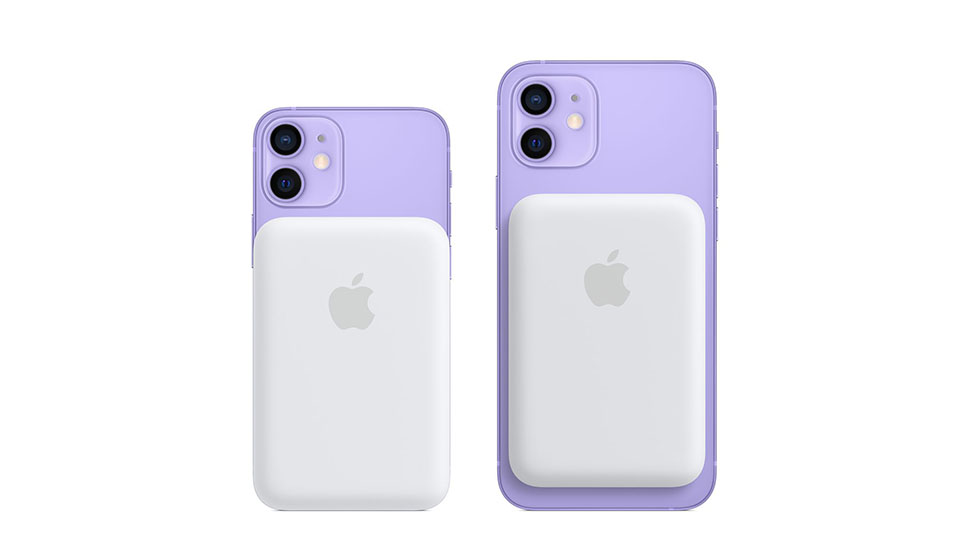
6. Apple MagSafe Battery Pack
Specifications
Reasons to buy
Reasons to avoid
Utilizing the iPhone 12, 13, 14 and 15 line's method of using magnets to perfectly align everything, the MagSafe Battery Pack looks great. Simply attach it to the back of your iPhone and you're good to go. It’s slick, simple, and very Apple. The magnets mean it's firmly attached with the battery pack capable of charging via a 27W or higher charger such as those with a MacBook, or there's the option to use a Lightning cable for up to 15W of wireless charging.
It's expensive for what it is but as is always the way with Apple products, you'll grudgingly realize why. Just don't count on it coming with a power adapter or cable because, of course, it doesn't, so that’s potentially yet another expense you’ll have to factor in if you somehow don’t already have one. Still, cost aside this is one of the best iPhone chargers.
What type of iPhone charger is for you?
How to choose the best iPhone charger for you
Don’t just look at the price. Look at what you want to do now, and what you might want to do next year. For example, an 18W charger will fast charge your iPhone, but it’s not powerful enough to run a MacBook Pro. A more powerful one may be a better option for your future tech arsenal.
It’s also wise to go for USB-C even if you don’t need it right now. That’s the standard for the rest of the mobile market (iPhone 15 and iPhone 16 included), so USB-C is future-proofed and backward compatible. Just remember that we mean USB-C plugging into the charger, and Lightning on the other end of the cable to plug into the iPhone (unless you've got an iPhone 15 or iPhone 16, of course, which uses USB-C on both ends).
The options above are our favorite iPhone charging blocks, iPhone charging cables and wireless iPhone charging pads, so they're a good place to start. We’ve chosen them based on three key criteria: quality, usefulness and value for money. Whether you’re a road warrior or a box set binger, these chargers, cables and pads are the best ways to keep your iPhone powered up.
What's the difference between wireless and wired charging?
Wireless isn’t always as fast, but it’s more convenient. Most wireless iPhone chargers deliver 5W or 7.5W and work through most iPhone cases.
Most standalone charging pads expect you to provide the actual charger brick, and can’t deliver more power than you put into them – so, even if an iPhone wireless charging pad can deliver 7.5W, it can’t do that if you’re plugging it into a charger that only gives it 5W.
What to look for in an iPhone charger
If you're looking for a charging block, power and ports matter. For fast charging (iPhone 8 onwards), you’ll need 18W or more and USB-C, not the older, more common USB-A.
Meanwhile, when choosing a charging cable, durability is key. Nylon braiding reduces tangling; look for reinforcements where the cable meets the connector, as that’s where cables tend to fray.
Finally, if you want a wireless charger, it's worth bearing in mind that many wireless chargers deliver 5W. That's fine for overnight charging, but if you want something faster, a 7.5W option charges faster.
Get daily insight, inspiration and deals in your inbox
Sign up for breaking news, reviews, opinion, top tech deals, and more.

Axel is TechRadar's UK-based Phones Editor, reporting on everything from the latest Apple developments to newest AI breakthroughs as part of the site's Mobile Computing vertical. Having previously written for publications including Esquire and FourFourTwo, Axel is well-versed in the applications of technology beyond the desktop, and his coverage extends from general reporting and analysis to in-depth interviews and opinion. Axel studied for a degree in English Literature at the University of Warwick before joining TechRadar in 2020, where he then earned an NCTJ qualification as part of the company’s inaugural digital training scheme.
- Philip BerneUS Mobiles Editor